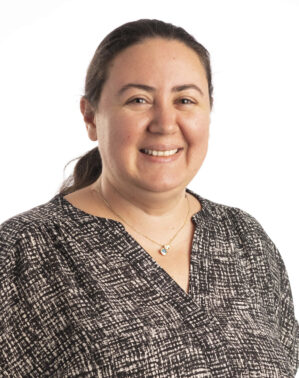Title: The Role of Autophagy in Bone Remodeling

Dr. Onal has previously demonstrated that mice lacking Atg7, and thus macroautophagy, in cells of the osteoblast lineage exhibit very low bone mass. The molecular mechanisms responsible for this phenotype remain unclear. Therefore, one goal of her project is to perform an unbiased analysis of osteoblasts in these mice using single cell RNA sequencing (scRNA-seq), thereby taking advantage of recent advances and tools produced by the CMDR Bioinformatics Core. In addition, she will test the hypothesis that lack of autophagy in osteocytes alters the mechano-responsiveness of bone. For these studies, she will collaborate with Jinhu Xiong, who established askeletal loading model at UAMS and identified Piezo1 as an essential mechanosensor during Phase 1. In a second set of studies, Dr. Onal will explore the role of chaperone-mediated autophagy (CMA) in bone formation via cell type-specific deletion of Lamp2a. In preliminary studies, she demonstrated that CMA plays a minor role in the skeleton under normal physiological conditions. However, because studies in other cell types suggest that CMA is primarily a response to cell stress, she will test the hypothesis that CMA in osteoblastic cells becomes more important under stressful conditions, such as endoplasmic reticulum stress caused by osteogenesis imperfecta (OI). Based in part on the availability of OI murine models provided by Roy Morello and on his experience with such models, Dr. Onal will determine if loss of Lamp2a causes a more severe skeletal phenotype in an OI model. Lastly, Dr. Onal will determine whether genetic stimulation of macroautophagy is sufficient to improve the skeletal phenotype of the murine model of OI. For these latter studies, she will continue her productive collaboration with the Genetic Models Core (Core B) to generate mice in which the endogenous Tfeb gene, which promotes autophagy at many levels, is stimulated by CRISPR activation. Overall, this project exhibits a high degree of synergy among several components of the Center.
Dr. Onal’s Mentors
Steve Barger, Ph.D., is a Professor of Geriatrics, Neurobiology and Developmental Sciences, and Internal Medicine. Dr. Barger’s primary interest is in the events related to neuronal death caused by pathological insults (especially, excitotoxicity) and the protection against these insults afforded by changes in gene expression. Particular focus has been given to interactions between proteins implicated in the pathogenesis of Alzheimer’s disease. His laboratory also characterizes effects of these proteins and neurotransmitters on gene expression.
Elena Ambrogini, M.D., Ph.D., is an Associate Professor in the Division of Endocrinology and Metabolism, Internal Medicine, UAMS. The main research interests of Dr. Ambrogini are in the field of endocrinology and particularly in bone and calcium homeostasis, and thyroid diseases. Her work is particularly focused on the pathophysiology of osteoporosis and metabolic bone diseases. These studies have been the object of oral presentations at International Meetings and publications.
